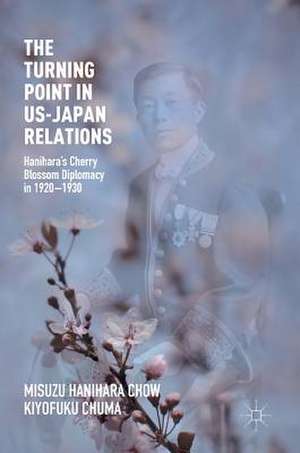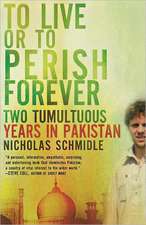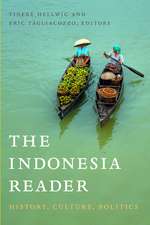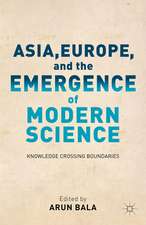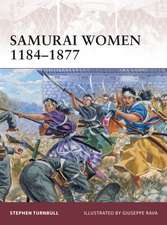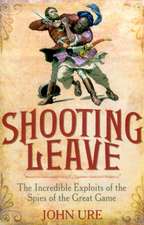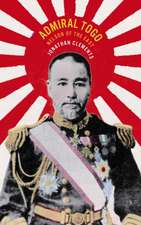The Turning Point in US-Japan Relations: Hanihara’s Cherry Blossom Diplomacy in 1920-1930
Autor Misuzu Hanihara Chow, Kiyofuku Chumaen Limba Engleză Hardback – iul 2016
| Toate formatele și edițiile | Preț | Express |
|---|---|---|
| Paperback (1) | 524.22 lei 6-8 săpt. | |
| Palgrave Macmillan US – 30 mai 2018 | 524.22 lei 6-8 săpt. | |
| Hardback (1) | 698.15 lei 6-8 săpt. | |
| Palgrave Macmillan US – iul 2016 | 698.15 lei 6-8 săpt. |
Preț: 698.15 lei
Preț vechi: 821.35 lei
-15% Nou
Puncte Express: 1047
Preț estimativ în valută:
133.59€ • 139.21$ • 110.61£
133.59€ • 139.21$ • 110.61£
Carte tipărită la comandă
Livrare economică 03-17 aprilie
Preluare comenzi: 021 569.72.76
Specificații
ISBN-13: 9781349581535
ISBN-10: 1349581534
Pagini: 250
Ilustrații: XVI, 252 p. 8 illus.
Dimensiuni: 148 x 210 x 20 mm
Greutate: 0.45 kg
Ediția:1st ed. 2016
Editura: Palgrave Macmillan US
Colecția Palgrave Macmillan
Locul publicării:New York, United States
ISBN-10: 1349581534
Pagini: 250
Ilustrații: XVI, 252 p. 8 illus.
Dimensiuni: 148 x 210 x 20 mm
Greutate: 0.45 kg
Ediția:1st ed. 2016
Editura: Palgrave Macmillan US
Colecția Palgrave Macmillan
Locul publicării:New York, United States
Cuprins
Chapter 1: Entering on to the World Stage: The Advent of a New International Order.- Chapter 2: Domestic Political Situation.- Chapter 3: The Making of a Young Diplomat: Thrust into the Caldron of Japan-US Diplomacy.- Chapter 4: At the Peak of His Career: Ambassador Plenipotentiary to the United States.- Chapter 5: A Tragedy that Eroded Japanese/American Relations: The Truth Behind the ‘Hanihara Note’.- Chapter 6: The Washington Conference Undone: The Impact of the Japanese Exclusion Clause.- Chapter 7: The Courage of One’s Conviction: Braving the Currents of Showa Diplomacy.- Epilogue.
Notă biografică
Misuzu Hanihara Chow
Born in Tokyo, Japan. BA in Economics/Journalism, Waseda University, MA in Journalism, University of California, Berkeley, PhD, The Graduate University for Advanced Studies, Japan Taught Japanese Studies subjects and language at UC Berkeley, University of Toronto, and Macquarie University, Sydney, Australia. Head of Macquarie University Japanese Studies Department (1988-2007) and Director of Macquarie Japanese Studies Centre (1994-2007). Lives in Sydney with husband Dr Michael Chow. Has two daughters and 4 grandchildren.
Kiyofuku Chuma (1935-2014)
Born in Kagoshima, Japan. Joined the Asahi Shimbun, Japan’s leading newspaper, in 1960. Worked as political journalist, editorial member specializing Japan’s security and politics, editor in chief, president of Osaka Asahi, and Vice President of the Asahi Shimbun. Research fellow at MIT(1983-84). A principal mover to establish Japan’s Canon ofJournalism. Represented Japan to International Press Institute (IPI) in Vienna. Well-respected investigative journalist and political and social critic in Japan. Numerous publications of books, essays and articles in Japan.
Textul de pe ultima copertă
This book analyses two international incidents in the 1920s shocked Japan and changed the way in which the country looked at the West. In the Paris Peace Conference, Japanese proposed Racial Equality Bill was defeated. In 1924, the US passed the immigration law that singularly excluded Japanese from immigration. Little known today, the two incidents made significant impact on Japanese mind-set. Detailed study of the two incidents reveals how they contributed towards the drastic transformation of Japan, from the liberal thinking Taisho Democracy in the 1920s to the violent rise of ultra- nationalism in the 1930s. Departing from a purely academic style writing, the story develops around the life of Hanihara Masanao, Japanese diplomat, Vice Minister of Foreign Affairs and ultimately the Ambassador to Washington during the fateful years of 1923-24. A unique pair of a Japanese Studies scholar in Australia and a leading investigative journalist in Japan undertook the work. Rigorous archivalsearch extended over Japan, the United States, Australia and Europe resulted in a significant amount of new materials never published in English before.
